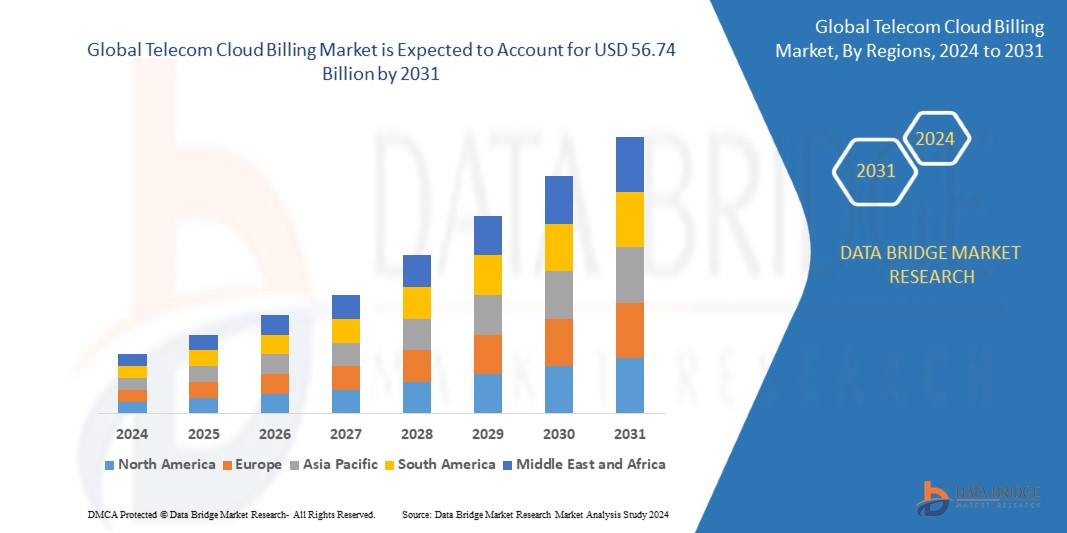Introduction
In an era of increasing digital transformation, telecom providers face the dual pressures of scaling up services and optimizing operations to keep up with growing demand and competition. One of the essential strategies for managing these challenges is adopting cloud billing solutions. Cloud billing has rapidly become a preferred choice, offering unparalleled flexibility, scalability, and operational efficiency. We will explore cloud billing, its key features and advantages, and its pivotal role for telecom providers.
Definition
Managing and billing for telecom services provided via cloud infrastructure is known as telecom cloud billing. It includes billing, handling payments, and monitoring usage for voice, internet, and messaging services-all in a cloud environment that gives telecom operators efficiency, scalability, and flexibility.
Understanding Cloud Billing in Telecom
Telecom companies can manage and optimise their billing procedures on a cloud platform with the help of cloud billing, a digital, internet-based solution. Unlike traditional billing systems that are on-premises and rigid, cloud billing leverages cloud computing to improve efficiency, transparency, and flexibility in billing. It can handle complex billing structures, such as subscription-based billing, pay-as-you-go models, and multi-tenant billing, making it highly adaptable to modern telecom needs.
Cloud billing systems use a Software-as-a-Service (SaaS) model, which means telecom companies pay for only the resources they consume. Additionally, cloud billing enables telecom providers to integrate with other essential platforms like customer relationship management (CRM), enterprise resource planning (ERP), and data analytics tools, providing a more holistic approach to customer and revenue management.
Key Features of Cloud Billing Solutions
To appreciate the full benefits of cloud billing for telecom providers, let’s examine the core features of these systems that make them so effective and sought after.
Scalability:
Cloud billing solutions are highly scalable, allowing telecom providers to manage fluctuating customer bases without the need to overhaul infrastructure. These solutions can adjust to increasing or decreasing service demands with minimal manual intervention.
Real-Time Billing and Analytics:
Cloud billing provides real-time billing and usage data, allowing providers to monitor and optimize billing practices instantly. Real-time insights improve accuracy, reduce errors, and enhance customer satisfaction by minimizing billing discrepancies.
Flexible Pricing Models:
Cloud billing supports various pricing models including subscription-based, usage-based, and hybrid billing. This flexibility helps telecom companies offer tailored plans to different customer segments, maximizing revenue opportunities.
Automated Invoicing and Payment Processing:
Automation capabilities in cloud billing systems simplify invoicing and payment processing, reducing manual tasks and potential errors. Automated reminders, payment gateways, and reconciliation are typically included to streamline the entire billing process.
Customer Self-Service Portals:
Many cloud billing platforms include self-service portals, allowing customers to view and manage their accounts, make payments, and view usage statistics. The load on support employees is lessened and client engagement is improved by this feature.
Advantages of Cloud Billing for Telecom Providers
The adoption of cloud billing systems offers several advantages that are particularly beneficial for telecom providers seeking to optimize their billing operations and improve customer satisfaction.
Enhanced Customer Experience:
Cloud billing systems support personalized billing plans, transparent invoices, and real-time access to billing information, making it easier for customers to understand and manage their charges. The improved accuracy and clarity reduce billing disputes and foster customer trust.
Increased Revenue Potential:
Flexible pricing models and customizable billing structures allow telecom providers to create revenue streams through subscription plans, usage-based billing, and value-added services. Real-time data analysis can identify opportunities to upsell or cross-sell services, further boosting revenue.
Operational Efficiency:
Automated billing processes reduce the time and resources spent on manual tasks, minimizing errors and administrative overhead. Cloud billing solutions also simplify tasks such as tax calculations, invoicing, and customer management, freeing up resources for other business functions.
Improved Agility and Scalability:
Unlike traditional billing systems, cloud billing solutions can scale up or down based on demand. This adaptability is particularly valuable for telecom providers that serve a dynamic customer base with varying service needs and consumption patterns.
Reduced Costs and Capital Expenditure:
Since cloud billing follows a pay-as-you-go model, it reduces the need for large initial investments and maintenance costs associated with physical infrastructure. The subscription model also allows telecom providers to only pay for what they use, optimizing costs.
Role of Cloud Billing in Modern Telecom
Cloud billing plays a strategic role in the modern telecom industry by driving operational efficiency and enabling innovation. Here’s how cloud billing is transforming the telecom landscape:
Streamlining Billing Operations: Cloud billing automates complex billing tasks, reducing errors and the need for manual processing. This streamlining helps telecom providers improve accuracy and accelerate payment cycles.
Supporting Diverse Customer Needs: Telecom customers range from individual users to large enterprises with unique requirements. Cloud billing enables providers to offer customizable, scalable solutions that address the varied needs of their customer base.
Enabling Global Expansion: For telecom providers looking to expand internationally, cloud billing systems simplify managing and scaling operations across multiple regions, currencies, and languages.
Facilitating Compliance with Regulatory Standards: Telecom providers must adhere to numerous data protection and industry regulations. Cloud billing solutions often come equipped with built-in compliance features, making it easier for companies to meet these regulatory demands.
Reducing Churn with Enhanced Customer Satisfaction: Cloud billing enhances customer satisfaction through transparent billing practices and self-service portals, where customers can access real-time information on their usage and expenses.
Driving Profitability Through Revenue Assurance: With automated processes and real-time insights, cloud billing solutions help telecom providers minimize revenue leakage, ensuring accurate billing and revenue tracking.
Providing a Competitive Edge with Innovation: Cloud billing solutions enable rapid implementation of new billing models, allowing telecom providers to stay ahead of the competition. The ability to offer flexible and innovative services is crucial in a market where customer expectations are constantly evolving.
Growth Rate of Telecom Cloud Billing Market
According to Data Bridge Market Research, the size of the global telecom cloud billing market was estimated at USD 10.18 billion in 2023 and is expected to grow at a compound annual growth rate (CAGR) of 23.96% from 2024 to 2031, reaching USD 56.74 billion.
Read More: https://www.databridgemarketresearch.com/reports/global-telecom-cloud-billing-market
Conclusion
As the telecom industry becomes increasingly complex and competitive, adopting a cloud billing solution is a strategic move that can unlock numerous benefits. From scalability and cost savings to enhanced customer experience and security, cloud billing provides telecom providers with the tools they need to thrive in a rapidly evolving market. By streamlining billing operations, offering flexible payment models, and providing real-time insights, cloud billing enables telecom companies to adapt quickly, optimize revenue, and deliver a superior customer experience. Embracing cloud billing is not just a technology upgrade it’s a transformation that empowers telecom providers to meet the demands of the digital age efficiently and effectively.




